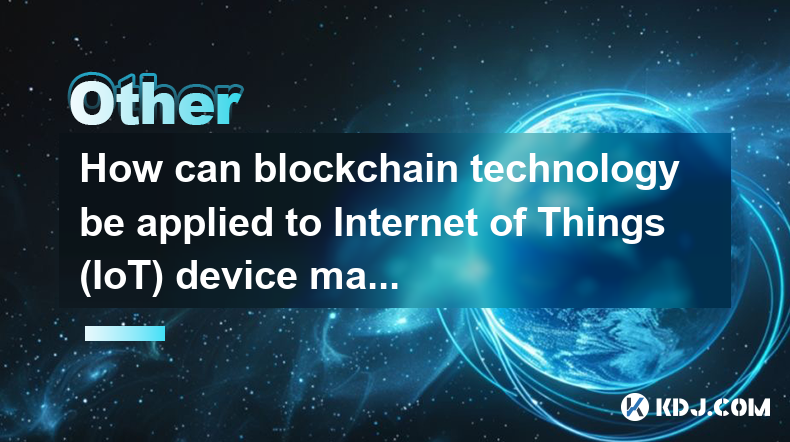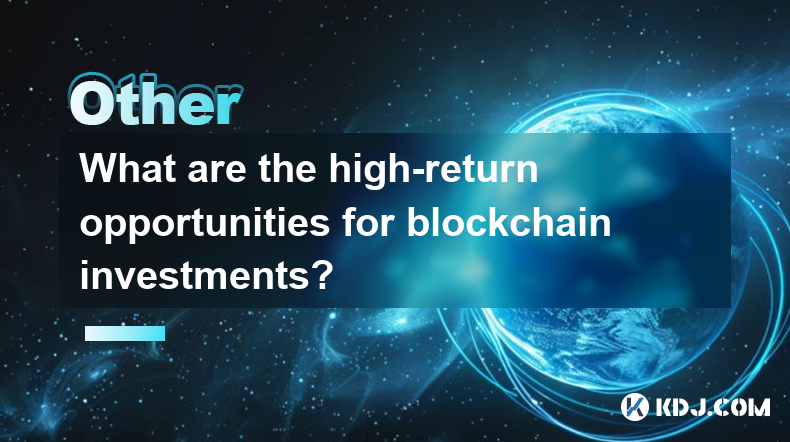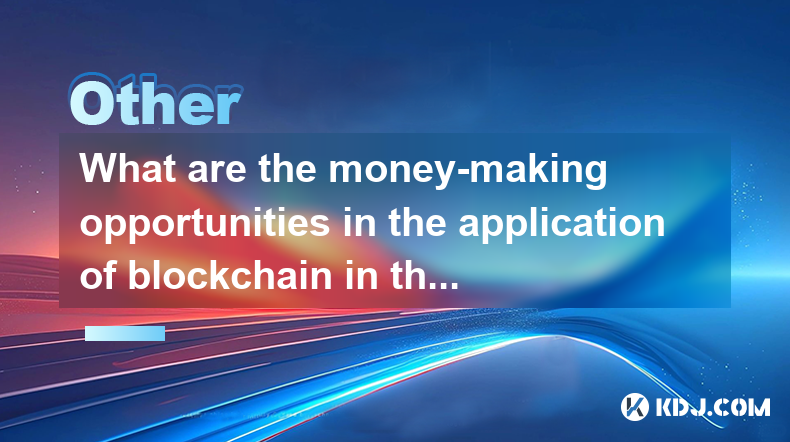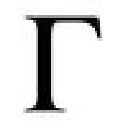-
 Bitcoin
Bitcoin $79,012.1761
-4.78% -
 Ethereum
Ethereum $1,570.4026
-12.09% -
 Tether USDt
Tether USDt $0.9994
-0.02% -
 XRP
XRP $1.9666
-7.46% -
 BNB
BNB $555.4328
-6.02% -
 USDC
USDC $0.9999
-0.01% -
 Solana
Solana $107.5201
-9.67% -
 Dogecoin
Dogecoin $0.1506
-10.27% -
 TRON
TRON $0.2315
-2.62% -
 Cardano
Cardano $0.5814
-10.27% -
 UNUS SED LEO
UNUS SED LEO $8.8602
-2.17% -
 Chainlink
Chainlink $11.3795
-10.04% -
 Toncoin
Toncoin $3.0063
-7.92% -
 Stellar
Stellar $0.2370
-5.38% -
 Avalanche
Avalanche $16.1395
-9.48% -
 Shiba Inu
Shiba Inu $0.0...01134
-7.55% -
 Sui
Sui $1.9135
-13.06% -
 Hedera
Hedera $0.1425
-11.59% -
 Polkadot
Polkadot $3.7145
-5.76% -
 MANTRA
MANTRA $5.9824
-4.31% -
 Bitcoin Cash
Bitcoin Cash $272.1059
-9.40% -
 Litecoin
Litecoin $71.2279
-13.11% -
 Dai
Dai $1.0000
-0.02% -
 Ethena USDe
Ethena USDe $0.9987
-0.05% -
 Bitget Token
Bitget Token $4.1866
-5.67% -
 Pi
Pi $0.5915
4.23% -
 Monero
Monero $200.3568
-5.71% -
 Hyperliquid
Hyperliquid $10.5427
-10.74% -
 Uniswap
Uniswap $5.1188
-11.73% -
 OKB
OKB $50.3711
-2.37%
How can blockchain technology be applied to Internet of Things (IoT) device management?
Blockchain enhances IoT security by providing a decentralized, immutable ledger for managing device identities, firmware updates, and data, increasing trust and enabling efficient data monetization.
Feb 28, 2025 at 05:36 pm

How Can Blockchain Technology Be Applied to Internet of Things (IoT) Device Management?
Key Points:
- Enhanced Security: Blockchain's cryptographic security features significantly improve the security of IoT devices and data transmission, mitigating risks associated with vulnerabilities and unauthorized access. This includes securing device identities, firmware updates, and data integrity.
- Improved Data Management: Blockchain provides a decentralized and immutable ledger for recording and managing IoT data, enhancing transparency and traceability. This simplifies data access control and improves data provenance.
- Streamlined Device Provisioning and Management: Blockchain facilitates automated and secure device onboarding and management, reducing manual intervention and improving efficiency in large-scale IoT deployments. This includes simplifying identity management and access control.
- Increased Trust and Transparency: The decentralized and transparent nature of blockchain fosters trust among stakeholders in IoT ecosystems, enabling secure collaboration and data sharing. This is particularly beneficial in supply chain management and data-sharing scenarios.
- Efficient Data Monetization: Blockchain enables new business models for data monetization by securely tracking data ownership and facilitating transparent data transactions between different parties. This allows for the creation of new revenue streams from IoT data.
Applying Blockchain to IoT Device Management: A Detailed Exploration
- Enhanced Security through Decentralized Identity Management: Traditional IoT device management often relies on centralized servers for authentication and authorization, creating a single point of failure vulnerable to attacks. Blockchain offers a decentralized alternative. Each IoT device can be assigned a unique digital identity on the blockchain, verified cryptographically and managed through distributed ledger technology (DLT). This eliminates the need for a central authority, making the system more resilient to attacks. Furthermore, access control can be implemented using smart contracts, automatically granting or revoking access based on pre-defined rules and conditions. This granular control significantly reduces the risk of unauthorized access and data breaches. The immutability of the blockchain ensures that any changes to device identities or access rights are permanently recorded and auditable, providing a transparent and trustworthy system. Consider a scenario where a malicious actor attempts to compromise a device's identity; with a blockchain-based system, this would be immediately detectable through the tamper-proof nature of the ledger. The cryptographic hashing mechanisms employed by blockchain ensure that any alteration to the device's identity would be immediately evident, allowing for swift remediation. This granular, secure, and transparent identity management is crucial for protecting sensitive data collected by IoT devices in various applications, from smart homes to industrial automation.
- Improved Data Management and Provenance through Immutable Records: IoT devices generate vast amounts of data, and managing this data efficiently and securely is a significant challenge. Blockchain addresses this by providing a decentralized and immutable ledger for recording and tracking IoT data. Each data point can be recorded on the blockchain along with its timestamp and source, ensuring data integrity and provenance. This creates an auditable trail, allowing stakeholders to verify the authenticity and origin of the data. This is particularly important in applications where data integrity is critical, such as supply chain management and healthcare. For instance, a temperature sensor in a refrigerated truck can record its readings on a blockchain, creating an immutable record of the temperature throughout the journey. This eliminates the possibility of data manipulation and provides a transparent and verifiable record for auditing purposes. Moreover, smart contracts can be used to automate data access control, allowing only authorized parties to access specific data sets. This granular control enhances data security and privacy while ensuring efficient data management. The decentralized nature of the blockchain prevents single points of failure and ensures data availability even if individual nodes fail. This robust architecture significantly improves data reliability and resilience, enhancing the overall trustworthiness of the IoT system.
- Streamlined Device Provisioning and Management with Automated Onboarding: The onboarding of new IoT devices into a system can be a complex and time-consuming process. Blockchain simplifies this process through automated onboarding. When a new device joins the network, its identity is registered on the blockchain, and its access rights are defined using smart contracts. This eliminates the need for manual configuration and simplifies device management, particularly in large-scale deployments. The blockchain can also track the lifecycle of each device, recording events such as firmware updates, maintenance activities, and decommissioning. This comprehensive tracking provides valuable insights into device performance and helps in proactive maintenance and troubleshooting. Automated provisioning minimizes the risk of human error and ensures consistent configuration across all devices. This streamlined process reduces operational costs and increases efficiency. Furthermore, the blockchain-based system enables remote management of devices, allowing administrators to update firmware, configure settings, and monitor performance from a central location. This remote management capability reduces the need for on-site intervention, which is particularly beneficial in geographically dispersed environments. The secure and automated nature of the blockchain-based system improves overall efficiency and reduces the operational burden associated with managing a large number of IoT devices.
- Increased Trust and Transparency through Decentralized Data Sharing: In many IoT applications, data sharing among multiple stakeholders is necessary. However, traditional methods of data sharing often lack transparency and trust. Blockchain addresses this by enabling secure and transparent data sharing. Data can be shared among authorized parties using smart contracts, ensuring that only authorized entities have access to the data. The immutability of the blockchain ensures that data cannot be tampered with, enhancing trust and accountability. This is particularly relevant in collaborative environments, such as supply chain management and smart cities, where data is shared among different organizations. For instance, in a supply chain scenario, blockchain can track the movement of goods from manufacturer to retailer, ensuring transparency and accountability at each stage. Each participant in the supply chain can access the relevant data on the blockchain, enabling real-time tracking and monitoring. This shared visibility improves efficiency, reduces disputes, and builds trust among the stakeholders. The decentralized nature of the blockchain eliminates the need for a central authority, reducing the risk of data manipulation and enhancing data integrity. This increased trust and transparency foster collaboration and improve the overall efficiency of the IoT ecosystem.
- Efficient Data Monetization through Secure Data Ownership and Transactions: IoT devices generate vast amounts of data, which can be a valuable asset. Blockchain enables the creation of new business models for data monetization by securely tracking data ownership and facilitating transparent data transactions. Data owners can grant access to their data to third parties using smart contracts, defining the terms of access and payment. This allows for the creation of new revenue streams from IoT data while ensuring secure and transparent transactions. The immutability of the blockchain ensures that data ownership and transactions are accurately recorded and auditable, reducing the risk of disputes. This transparent system promotes trust among data owners, data consumers, and intermediaries, facilitating efficient data monetization. Smart contracts automate the payment process, eliminating the need for intermediaries and reducing transaction costs. This allows data owners to receive timely and accurate payments for their data, fostering a more efficient and profitable data market. The ability to securely track and manage data ownership and transactions through blockchain empowers data owners and fosters innovation in the IoT data market.
FAQs:
Q: What are the main challenges in applying blockchain to IoT device management?
A: The main challenges include scalability (handling the large volume of data generated by IoT devices), interoperability (ensuring seamless communication between different blockchain networks and IoT devices), energy consumption (blockchain transactions can be energy-intensive), and regulatory uncertainty (the lack of clear regulatory frameworks for blockchain-based IoT systems). Furthermore, the complexity of integrating blockchain technology into existing IoT infrastructure can be a significant hurdle, requiring specialized expertise and careful planning. Finally, the cost of implementing and maintaining a blockchain-based IoT system can be high, especially for smaller organizations.
Q: What types of blockchain are best suited for IoT device management?
A: Several types of blockchains could be suitable, depending on the specific requirements of the application. Permissioned blockchains, where access is controlled by a designated group of participants, offer better security and scalability for private IoT networks. Public blockchains, such as Ethereum, provide transparency and decentralization but may suffer from scalability issues and higher transaction costs. Hybrid approaches, combining aspects of both permissioned and public blockchains, could offer a balance between security, transparency, and scalability. The choice of blockchain will depend on factors such as the size and security requirements of the IoT network, the level of transparency needed, and the cost considerations.
Q: How does blockchain improve the security of firmware updates in IoT devices?
A: Blockchain enhances firmware update security by providing a tamper-proof record of each update. The integrity of the firmware can be verified using cryptographic hashing, ensuring that the firmware has not been altered during the update process. This prevents malicious actors from injecting malware into the firmware. Furthermore, blockchain can be used to track the origin and authenticity of the firmware, ensuring that it comes from a trusted source. This enhances the trust and reliability of firmware updates, reducing the risk of security vulnerabilities. Blockchain-based systems can also automate the update process, making it more efficient and less prone to human error. This secure and efficient process reduces the risk of compromised firmware and improves the overall security of the IoT devices.
Q: Can blockchain solve all the security problems associated with IoT devices?
A: No, blockchain is not a silver bullet that solves all security problems associated with IoT devices. While it significantly enhances security in several key areas, it doesn't address all aspects. For example, blockchain doesn't directly protect against physical attacks on devices, such as theft or unauthorized access to the device itself. Furthermore, the security of a blockchain-based IoT system is still dependent on the security of the underlying infrastructure and the implementation of proper security practices. A robust security strategy needs a multi-layered approach that combines blockchain technology with other security measures, such as strong encryption, access control mechanisms, and regular security audits. Blockchain serves as a critical component of a comprehensive security strategy, but it's not a standalone solution.
Q: What are the future trends in applying blockchain to IoT device management?
A: Future trends include the increased use of permissioned blockchains optimized for scalability and performance, the integration of blockchain with other emerging technologies such as artificial intelligence and machine learning to improve device management and data analysis, the development of standardized protocols and frameworks for blockchain-based IoT systems, and the exploration of novel business models for data monetization using blockchain. Furthermore, we can expect greater adoption of blockchain in various industry verticals, such as healthcare, supply chain management, and industrial automation, driven by the need for enhanced security, transparency, and efficiency in managing large-scale IoT deployments. The increasing focus on data privacy and regulatory compliance will also shape the future development of blockchain-based IoT systems.
Disclaimer:info@kdj.com
The information provided is not trading advice. kdj.com does not assume any responsibility for any investments made based on the information provided in this article. Cryptocurrencies are highly volatile and it is highly recommended that you invest with caution after thorough research!
If you believe that the content used on this website infringes your copyright, please contact us immediately (info@kdj.com) and we will delete it promptly.
- Tether to Acquire Majority Stake in Adecoagro; Bioceres Allegedly Next
- 2025-04-07 05:15:13
- Renowned Crypto Investor Has Outlined a Brave XRP Price Prediction
- 2025-04-07 05:15:13
- Toncoin (TON) Price Regains Traction and Might Soon Surge Further Toward the $4.80 Resistance Zone
- 2025-04-07 05:10:12
- The cryptocurrency mining landscape in 2025 is flourishing, with cloud mining shining as a highly accessible
- 2025-04-07 05:10:12
- Solaxy (SOLX) Raises $28M in Presale, Aiming to Be the Arbitrum of Solana
- 2025-04-07 05:05:13
- BingX Launches Perpetual Trading on TradingView
- 2025-04-07 05:05:13
Related knowledge

Is the ranking of Chinese blockchain apps real and reliable?
Apr 04,2025 at 09:01pm
The ranking of Chinese blockchain apps has become a topic of interest for many in the cryptocurrency community, as it provides insights into the popularity and adoption of blockchain technology within China. However, the reliability and authenticity of these rankings are often questioned. This article aims to delve into the factors that influence these ...

What are the future development trends of blockchain game development?
Apr 03,2025 at 05:00am
Blockchain technology has revolutionized various industries, and gaming is no exception. As we look to the future, several trends are set to shape the development of blockchain games. These trends not only promise to enhance the gaming experience but also to integrate blockchain technology more seamlessly into the gaming ecosystem. Let's explore these t...

What are the high-return opportunities for blockchain investments?
Apr 05,2025 at 02:35pm
Blockchain technology has revolutionized the financial world, offering numerous high-return investment opportunities. These opportunities span various sectors within the cryptocurrency ecosystem, including cryptocurrencies, decentralized finance (DeFi), non-fungible tokens (NFTs), and blockchain startups. Each of these areas presents unique risks and re...

What are the maintenance costs of blockchain system development?
Apr 03,2025 at 06:07pm
The maintenance costs of blockchain system development are multifaceted and depend on various factors. These costs can include technical maintenance, security updates, infrastructure expenses, and personnel costs. Understanding these elements is crucial for anyone planning to develop or maintain a blockchain system. Technical MaintenanceTechnical mainte...

What are the money-making models of blockchain games?
Apr 04,2025 at 02:00pm
Blockchain games have emerged as a revolutionary way for players to earn real money while enjoying their favorite pastime. These games leverage the power of blockchain technology to create unique money-making models that benefit both the players and the developers. In this article, we will explore the various money-making models of blockchain games and ...

What are the money-making opportunities in the application of blockchain in the field of Internet of Things?
Apr 05,2025 at 10:35pm
The integration of blockchain technology with the Internet of Things (IoT) presents numerous money-making opportunities. Blockchain, with its decentralized and secure nature, can revolutionize how IoT devices interact, manage data, and conduct transactions. This article will explore various avenues where entrepreneurs, developers, and investors can capi...

Is the ranking of Chinese blockchain apps real and reliable?
Apr 04,2025 at 09:01pm
The ranking of Chinese blockchain apps has become a topic of interest for many in the cryptocurrency community, as it provides insights into the popularity and adoption of blockchain technology within China. However, the reliability and authenticity of these rankings are often questioned. This article aims to delve into the factors that influence these ...

What are the future development trends of blockchain game development?
Apr 03,2025 at 05:00am
Blockchain technology has revolutionized various industries, and gaming is no exception. As we look to the future, several trends are set to shape the development of blockchain games. These trends not only promise to enhance the gaming experience but also to integrate blockchain technology more seamlessly into the gaming ecosystem. Let's explore these t...

What are the high-return opportunities for blockchain investments?
Apr 05,2025 at 02:35pm
Blockchain technology has revolutionized the financial world, offering numerous high-return investment opportunities. These opportunities span various sectors within the cryptocurrency ecosystem, including cryptocurrencies, decentralized finance (DeFi), non-fungible tokens (NFTs), and blockchain startups. Each of these areas presents unique risks and re...

What are the maintenance costs of blockchain system development?
Apr 03,2025 at 06:07pm
The maintenance costs of blockchain system development are multifaceted and depend on various factors. These costs can include technical maintenance, security updates, infrastructure expenses, and personnel costs. Understanding these elements is crucial for anyone planning to develop or maintain a blockchain system. Technical MaintenanceTechnical mainte...

What are the money-making models of blockchain games?
Apr 04,2025 at 02:00pm
Blockchain games have emerged as a revolutionary way for players to earn real money while enjoying their favorite pastime. These games leverage the power of blockchain technology to create unique money-making models that benefit both the players and the developers. In this article, we will explore the various money-making models of blockchain games and ...

What are the money-making opportunities in the application of blockchain in the field of Internet of Things?
Apr 05,2025 at 10:35pm
The integration of blockchain technology with the Internet of Things (IoT) presents numerous money-making opportunities. Blockchain, with its decentralized and secure nature, can revolutionize how IoT devices interact, manage data, and conduct transactions. This article will explore various avenues where entrepreneurs, developers, and investors can capi...
See all articles





















































































